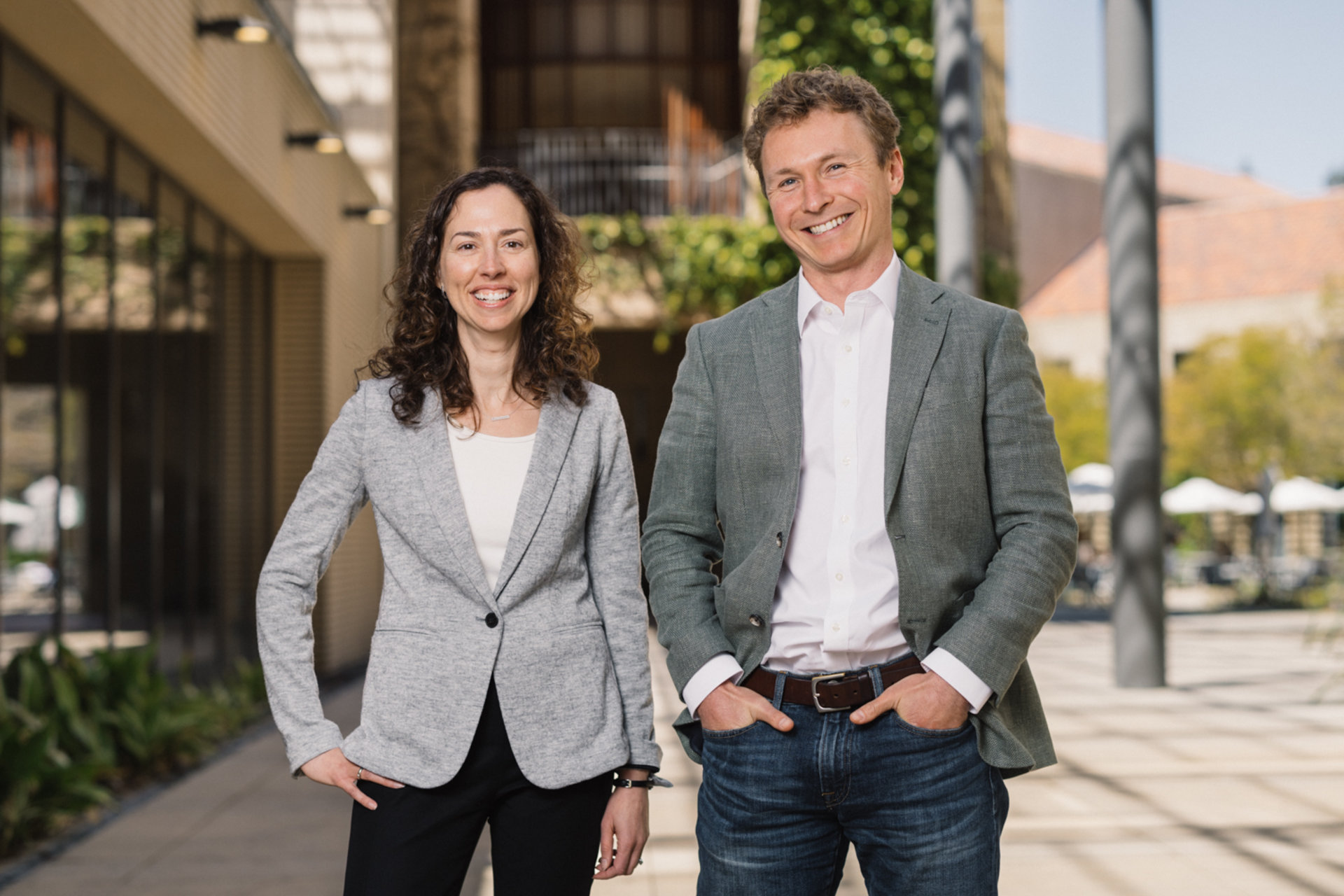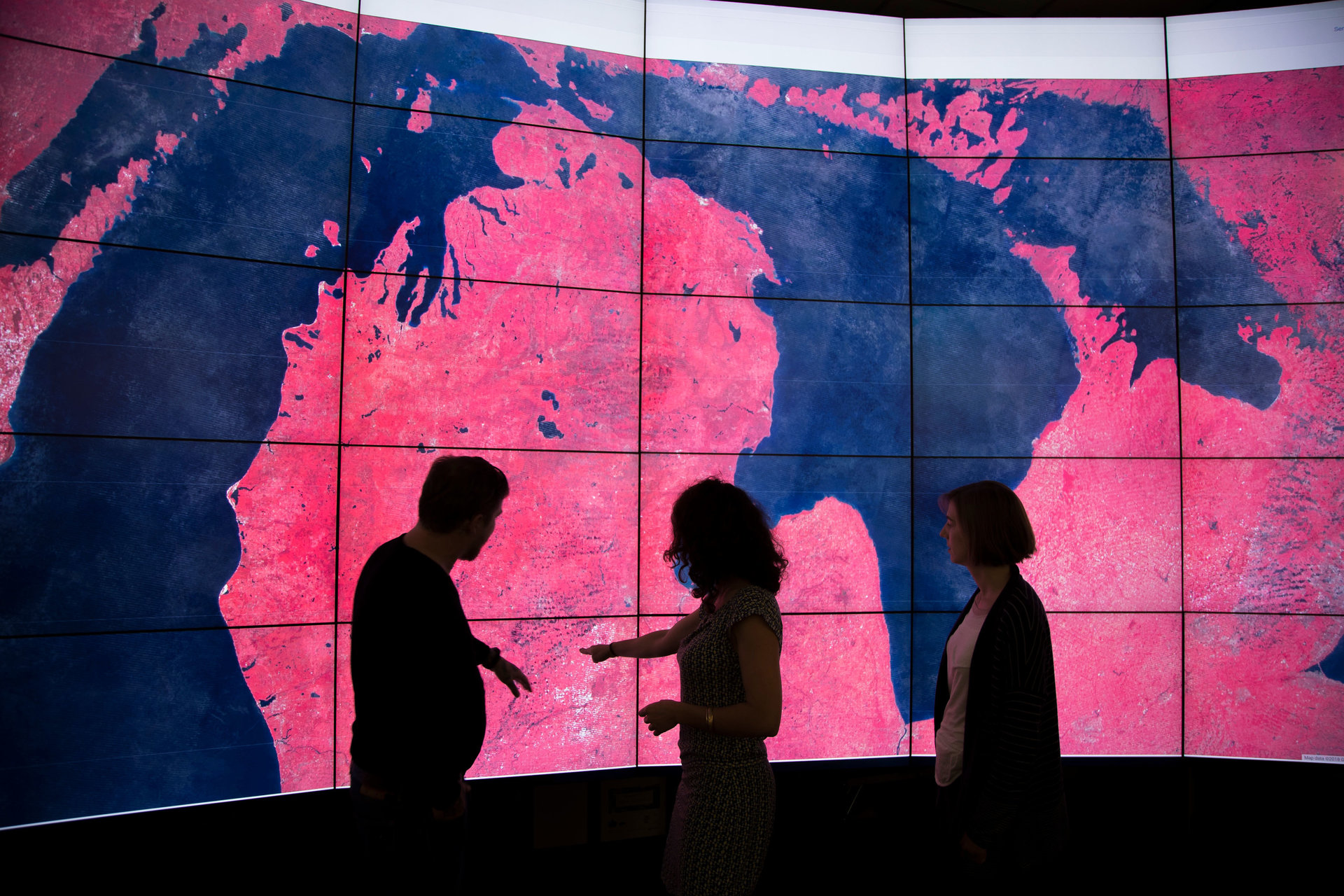Yi Cui named inaugural faculty director of Sustainability Accelerator
Cui has served as director of the Precourt Institute for Energy since 2020 – a role he will continue until a new director is named.

Yi Cui, who is currently director of Precourt Institute for Energy, has been named the inaugural faculty director of the Sustainability Accelerator within the Stanford Doerr School of Sustainability. Cui will continue to serve as director of Precourt until a new director is named.
The Sustainability Accelerator provides a launch pad to leverage knowledge and expertise at Stanford and co-develop potentially scalable sustainability technology and policy solutions with external partners worldwide. The accelerator will play a critical role in helping the school reach its recently announced first Flagship Destination of removing gigatons of greenhouse gas from the atmosphere.
“I’m excited for the opportunity to lead the Sustainability Accelerator and grow it into an organization that generates solutions at speed and scale,” Cui said. “This accelerator provides a novel opportunity to leverage Stanford’s extraordinary sustainability scholarship and work with partners globally to generate solutions.”
Cui’s research focuses on the fundamentals of nanomaterials and their applications in batteries, catalysts, wearables, carbon capture, mineral extraction, and environmental technology. He has founded five companies to commercialize technologies developed by his research group.
Cui has published approximately 550 research papers and has an outstanding H-index impact score of 251 (Google Scholar). In 2014, he was ranked No. 1 in materials science by Thomson Reuters’ “The World’s Most Influential Scientific Minds.” In 2022, Cui became an elected member of the National Academy of Sciences. He is a fellow of the American Association for the Advancement of Science, Materials Research Society, Electrochemical Society, and the Royal Society of Chemistry. He is an associate editor of Nano Letters. He is a co-director of the Battery 500 Consortium, and co-director of Stanford’s StorageX Initiative. His selected awards include the Global Energy Prize (2021), U.S. Department of Energy’s Lawrence Award (2020), Materials Research Society Medal (2020), and Blavatnik National Laureate (2017).
Cui was named Precourt director in 2020. Since that time, he launched the Precourt Pioneering Projects grants and a new Stanford Energy Postdoctoral Fellow program, which will create a community of 30 of the brightest minds in sustainable energy from around the world. In addition, the Stanford Hydrogen Initiative was launched during his tenure. Together with three previous Precourt directors, he has helped create an highly effective Stanford energy ecosystem of science, engineering, technology, economics, policy, and social behavior.
“Yi is an outstanding scholar and leader who will provide critical expertise in developing sustainability solutions that can scale,” said Arun Majumdar, dean of the Stanford Doerr School of Sustainability. “He brings deep scholarship, experience launching successful companies, and strong leadership skills that will ensure the accelerator reaches its potential of generating solutions that benefit people globally.”
Additional Flagship Destinations will be developed through input and feedback from stakeholders in the school and across the university (members of the Stanford community can contribute ideas through this survey). Each will be measurable; have the possibility for global impact at scale; create outcomes in a timeframe that reflect the urgency of the sustainability challenge; continuously examine equity issues and unintended consequences; require an approach that integrates different viewpoints, partnerships, and strategies; and leverage the strengths of a global network of collaborators across many sectors.
The Sustainability Accelerator funded its first round of grants during summer 2022, which supported projects working on a range of sustainability challenges, including groundwater restoration, plastic waste, environmental justice, the energy transition, and more. Future rounds of funding will focus on Flagship Destinations. In addition, there will be mechanisms for ideas that do not fall within the Flagship Destination, but are worthy of demonstrating proof-of-scalability that will be considered by a partnership between the school’s institutes and the Sustainability Accelerator. Institutes and centers within the school will continue to support a range of research areas spanning exploratory projects and impact-driven collaborations.
Explore More
-
The Stanford Forum on the Science of Energy Transition brought together scientific experts, technology innovators, and industry leaders to explore practical pathways to a decarbonized future.
-
A unique hands-on class teaches Stanford Law School students how to work with early-stage companies that have the potential to move the needle on climate and sustainability.
-
The first group of scholars supported under the new Sustainability Accelerator Fellowship program will focus on the challenge of removing billions of tons of greenhouse gases annually from Earth’s atmosphere by the middle of this century.



